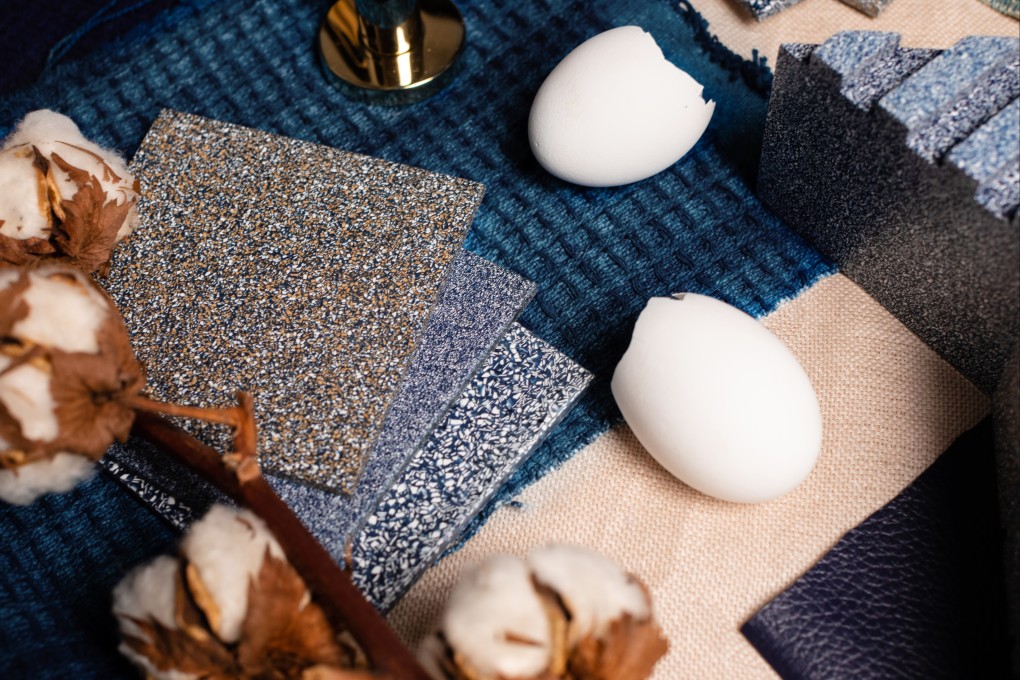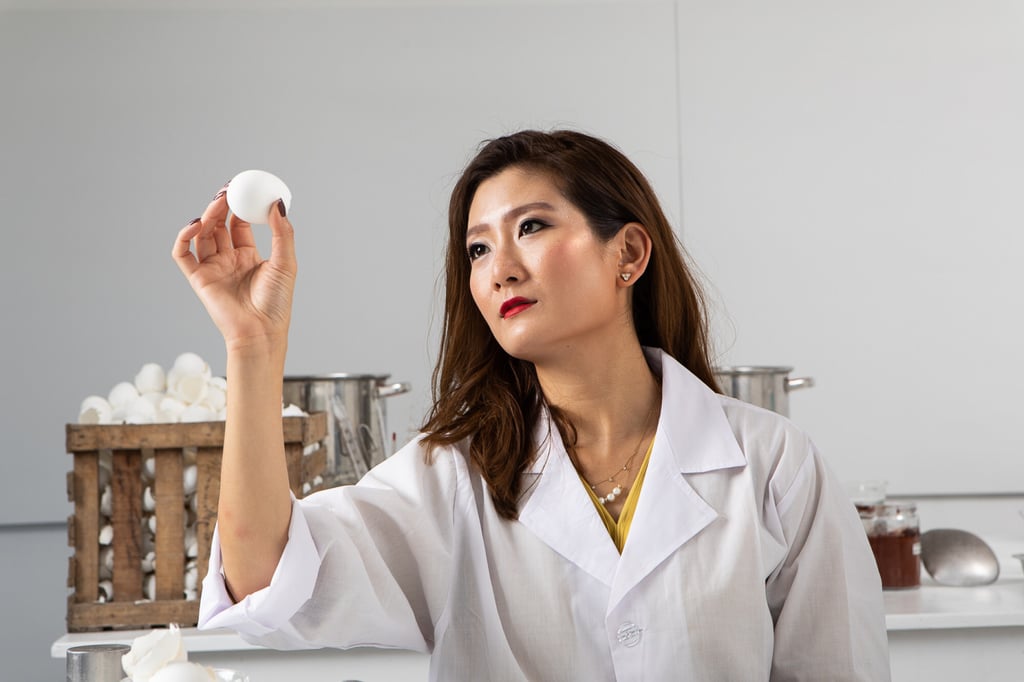Sustainable design: tiles made from upcycled eggshells more durable than ceramics, makers say
- The wall and floor tiles, by design brand Nature Squared and designer Elaine Ng, have the appearance of terrazzo and are handmade in the Philippines
- The tiles can be seen in Hong Kong at Ng’s showroom in Kwai Hing alongside other items in the collection, including stools and sculptural forms

What’s in an eggshell?
Rich in calcium and minerals, this part of the breakfast staple most of us routinely throw away is a resource useful for everything from garden fertiliser to DIY toothpaste and facial moisturiser.
According to ethical design brand Nature Squared and its chief materials innovator Elaine Yan-ling Ng, eggshells also make cracking architectural finishes.
A collection of wall and floor tiles made from upcycled eggshells – the result of a two-year collaboration between the Swiss design brand and British-Chinese textile designer Ng – can now be seen in Hong Kong with the January 2022 opening of a Nature Squared showroom within The Fabrick Lab, Ng’s bespoke textile consultancy and showroom in Kwai Hing.

The tiles are displayed alongside other items that make up the “Carrelé” collection, including stools and sculptural forms.